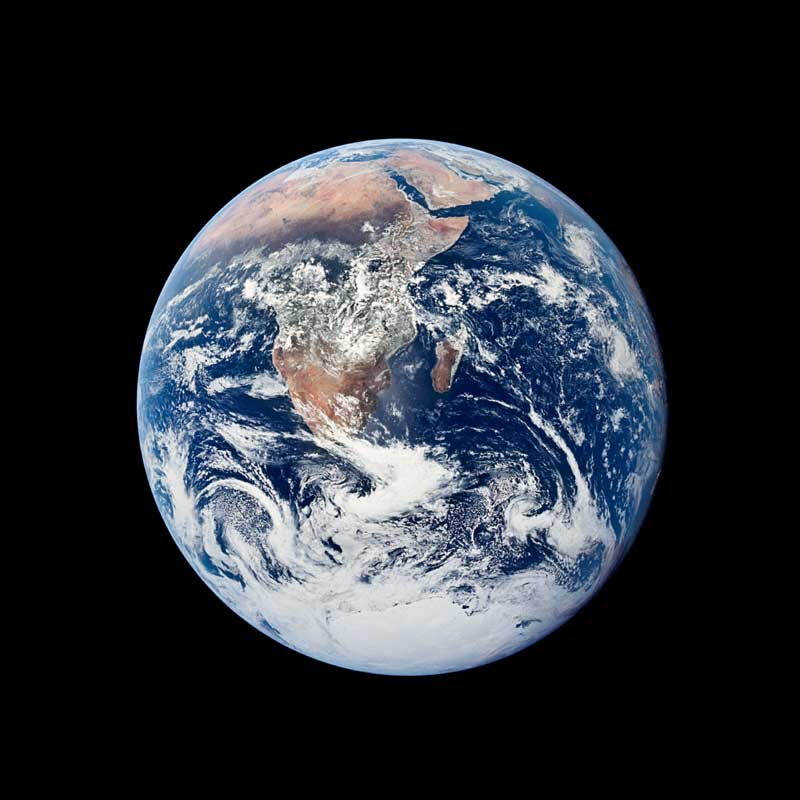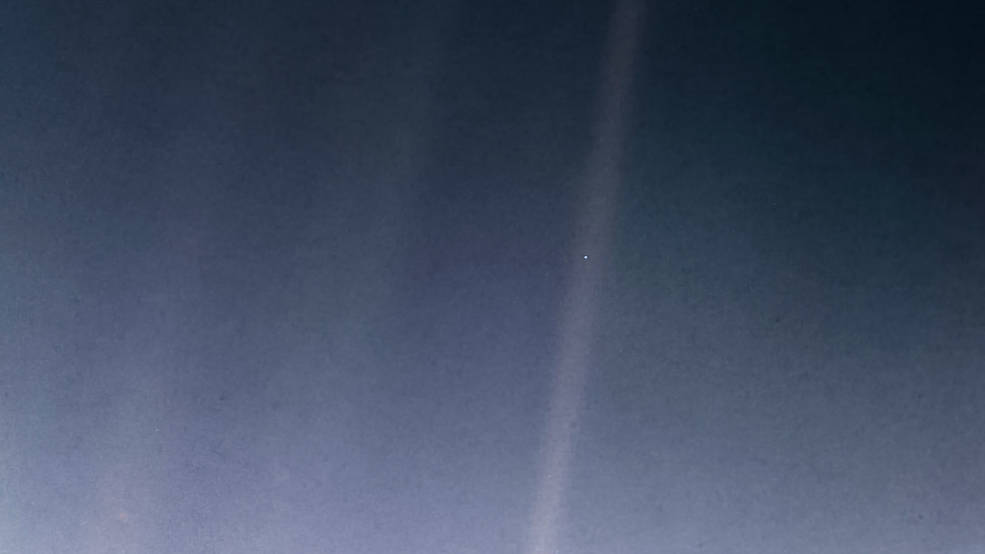
In the 1970s, Carl Sagan was a distinguished but obscure astronomer at Cornell University.
Then he started appearing on the Tonight Show with Johnny Carson and writing popular science books. He quickly became both a national celebrity and figure of fun with his stilted manner and quirky voice. Remember “billions and billions?”
Back in those days, NASA was source of great national pride for successfully orbiting astronauts around the earth, and landing Americans on the moon.
It seemed like there was no problem that American can-do ingenuity and technology could not solve. Be it poverty, famine, cancer, war, plague. Whatever the challenge, Uncle Sam could fix it.

But by the late 1980s, Sagan could see that both the earth and global civilization were in dire crisis. The “Pale Blue Dot” was his warning to mankind that this planet is all we have. He beseeched us to treat the environment and each other with respect and love. It was the only path to survival in a cold and desolate universe.
Fast forward to March of 2020.
There is a global pandemic of a novel coronavirus that is severely damaging the world economy, killing thousands of innocent people, and sowing seeds of doubts about the very idea of human progress.
So far, the response by the President of the United States has been mostly short sighted, wrongheaded, and self-serving.
If I were to list web links from respected and generally reliable news sources to all his disgraceful statements and policy blunders, your eyes would glaze over. Why bother to state and restate the obvious, ad nauseam?
Well…
According to the Washington Post on Trump polling data from March 2020, nearly half of adult Americans think that President Trump is doing a good job in managing the crisis.
This would not be life or death news in ordinary times. The usual “different strokes for different folks” philosophy of civic engagement has kept American society largely free from the very worst excesses of political polarization and strife.
But, if nearly half of all Americans prematurely choose to go back to work, return to school, and avoid the chore of frequent hand washing, there is a very high chance of many unnecessary deaths from the coronavirus—probably in the tens of thousands or more.
Perhaps of even greater concern, a sick workforce will struggle to provide the general populace with adequate food, water, electricity, phone and internet service, medical care, mortuary services, police and fire services, education, and public transportation.
Factor in summer hurricane and wildfire season, and you get an unprecedented and genuinely terrifying disruption to daily life for many Americans.
At that point, it is possible the military will declare a state-of-siege if our democratically elected federal, state, and local governments cannot contain the pandemic and provide the most basic necessities of daily life.
I hope that this disturbing scenario is just the product of a feverish imagination and not something within the realm of rational possibility.
Although I believe that the U.S. economy will manage to cope with this emergency in the short term, no one can say for certain what the country or world will be like in 5 to 10 years time.
One hopeful scenario is that the Millennial and Generation Z generations will make things better. These young people are much maligned by many Boomers and members of the Silent Generation.
But if there is one thing that the Cv19 makes most clear, these scolding and entitlement-guzzling old folks won’t be around for all that long. And I speak as a 70-year-old American white male.
Fortunately, those Americans born between roughly 1982 and 1997 harbor more humane attitudes about race, sexuality, and income distribution than previous generations.
The respected Pew Research Center has been perceptively and statistically documenting generational change for over 15 years.
These attitudes suggest a very different and potentially better country for the second half of the 21st century.
Here is a relevant link to the Pew research.
